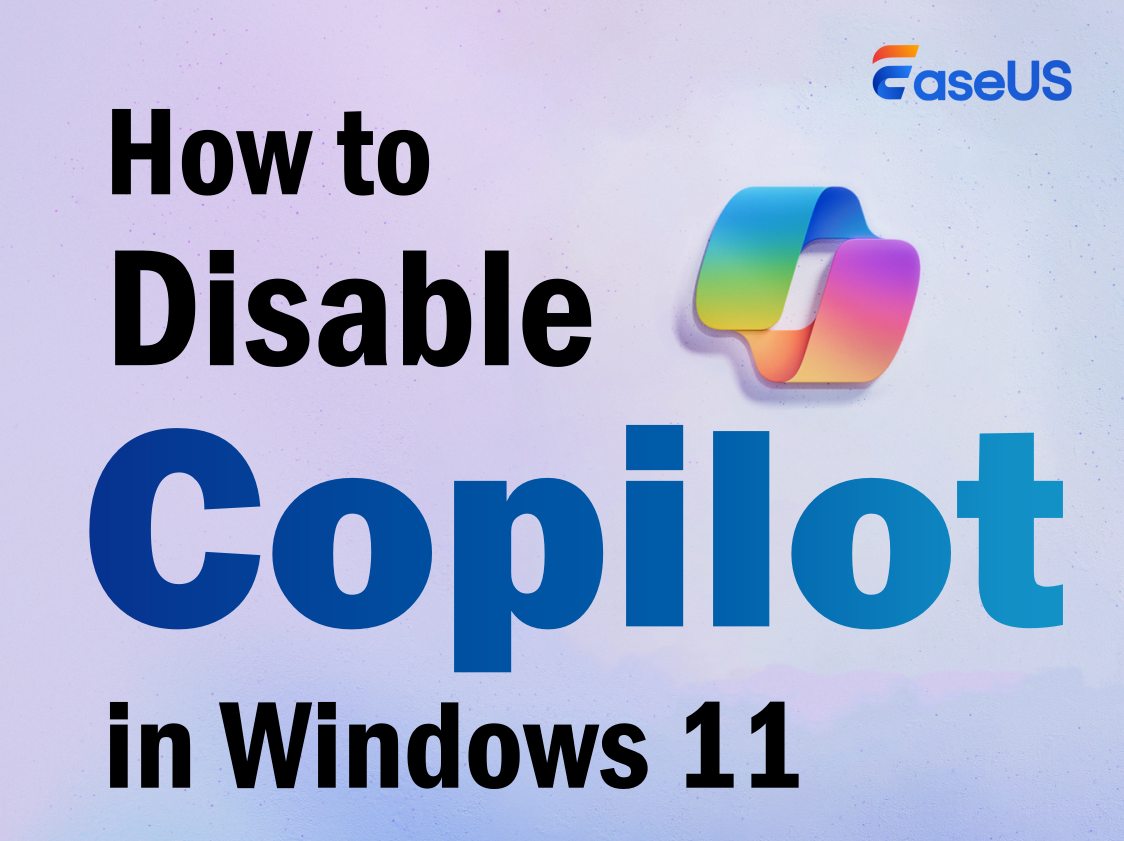
This sentiment resonates with many Windows users who find themselves grappling with Microsoft's new AI assistant, Windows Copilot. The emergence of Windows Copilot in Windows 11 was meant to increase user productivity by offering AI-powered assistance within an operating system. It aims to help users in performing tasks such as responding to queries, changing the system settings, and even generating content.
However, not everyone is eager to embrace this new technology. I too have my reservations about it. Some may wish to disable Copilot for numerous reasons, including fear of invasion of privacy, a preference for traditional interfaces, or even keeping control over their computing surroundings. Also, having an AI around can be irritating sometimes.
How to Disable Copilot in Windows 11 - 3 Options
Although there is no feature currently available to completely uninstall and remove Copilot from your Windows system, there are various ways you can disable and limit its presence on the system.
In this article, EaseUS will look into three ways you can disable Copilot, from making simple adjustments to more advanced techniques.
- Option 1. Disable Copilot in Settings
- Option 2. Disable Copilot via Group Policy Editor
- Option 3. Disable Copilot by Modifying the Registry
Option 1. Disable Copilot in Settings
The most straightforward approach to minimizing Copilot's accessibility is to use the Windows 11 Settings app. This method is simple and doesn’t require any sophisticated technical skill.
- Notice:
- This method only removes the Copilot icon from the Taskbar. It doesn't fully disable the feature, and you can still access Copilot using the "Windows key + C" keyboard shortcut (It may differ on different devices).
That said, if you want to remove it from the taskbar then follow these steps to Disable Copilot via Settings:
Step 1. Go to "Start" and click on the "Settings" icon from the menu.
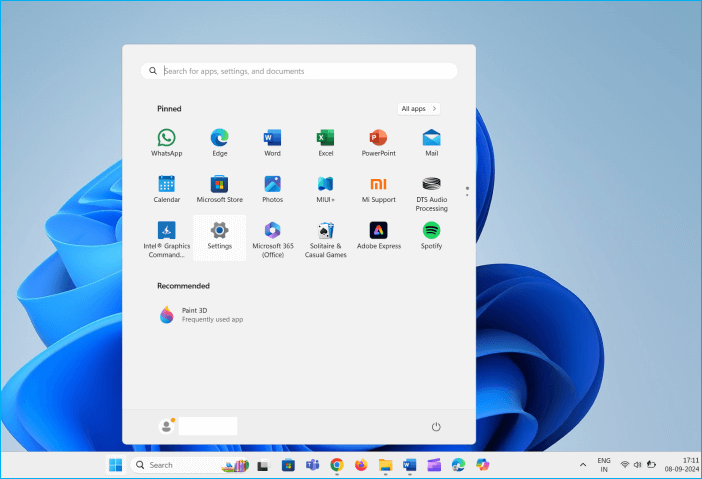
Step 2. Once the settings window opens, click on "Personalization" from the left sidebar.
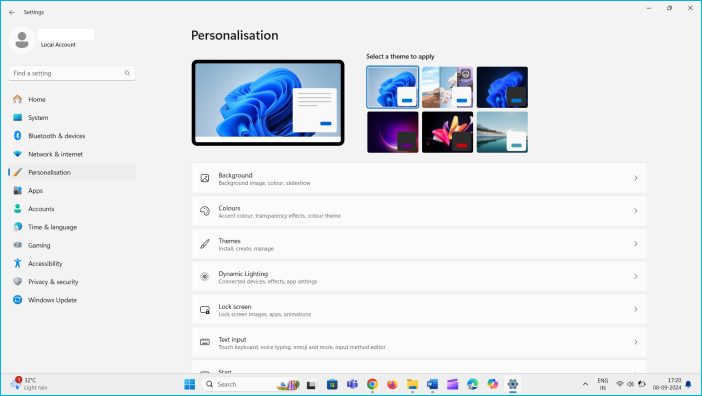
Step 3. Scroll downwards, then tap on "Taskbar."
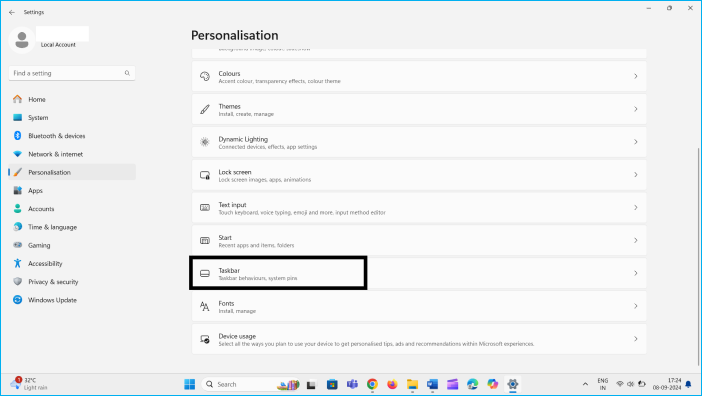
Step 4. Under the Taskbar items, look for the "Copilot" option and toggle the switch to the "Off" position.
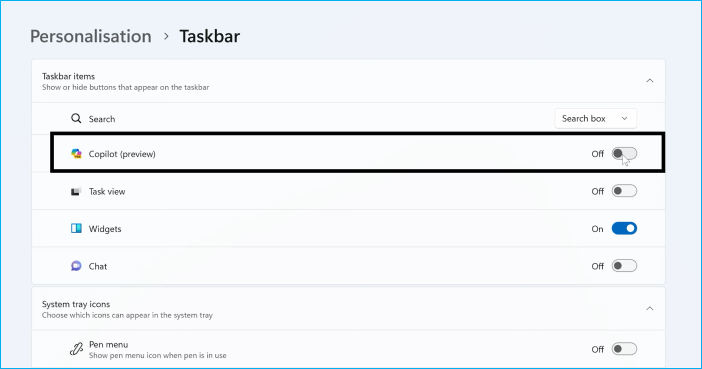
Option 2. Disable Copilot via Group Policy Editor
Group Policy Editor is an option for users in search of a more robust solution to disable Copilot. It helps to disable the Copilot throughout the system and is available on Windows 11 Pro, Enterprise, and Education editions.
To use Group Policy Editor to disable Copilot, follow the steps given below:
Step 1. Click on "Start."
Step 2. Type gpedit and select the top result to open Group Policy Editor.
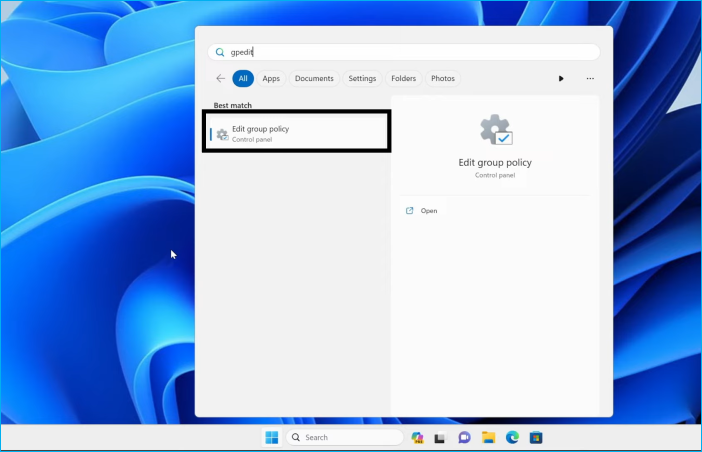
💡Tip: Windows Cannot Find GPEDIT.MSC on Windows 11/10, Fixed Now!
Step 3. Navigate to "User Configuration" > "Administrative Templates" > "Windows Components" > "Windows Copilot."
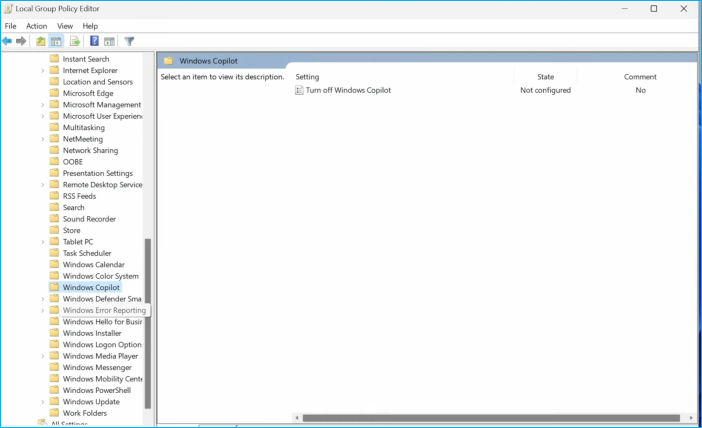
Step 4. In the right pane, double-click on the "Turn off Windows Copilot" option.
Step 5. Tick the "Enabled" button in the new dialog that appears to disable Copilot.
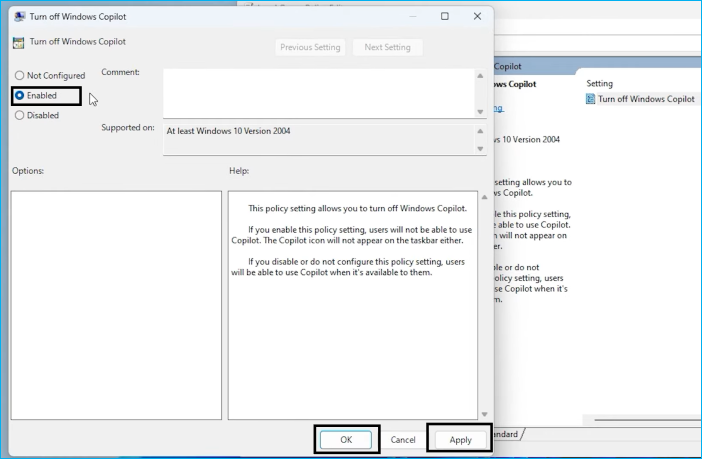
Step 6. Click "Apply," then "OK" to save changes. Finally, Restart your computer for changes to take effect.
This approach disables Copilot and prevents it from running in the background. It also removes access via keyboard shortcuts. However, future Windows updates can reverse this configuration. So, it's important to verify it from time to time if you wish to keep Copilot disabled.
See also:
Option 3. Disable Copilot by Modifying the Registry
So, if you don't have access to the Group Policy Editor or want a more straightforward method then follow this process. Altering the Windows Registry can be an efficient way to disable Copilot.
- Warning
- Before continuing, it's important to note that registry modification can be very risky. Any incorrect modifications may lead to system instability or a complete shutdown of your operating system. Always ensure you have a backup of your Registry before making any changes, and be careful when you do so.
All versions of Windows 11, including the Home edition, support this approach. So, you know it'll work for you. Okay, just follow these steps to disable Copilot using Registry Editor:
Step 1. Click on Start.
Step 2. Type regedit and select the top result to open the Registry Editor.
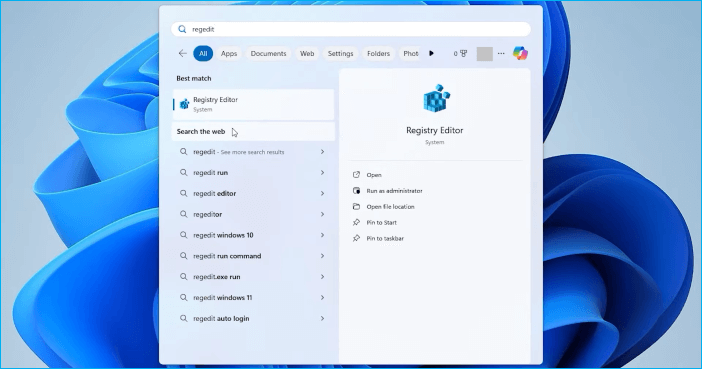
Step 3. Navigate to the following path:
- HKEY_CURRENT_USER\Software\Policies\Microsoft\Windows
Step 4. Right-click on the "Windows" folder, select "New," and select "Key."
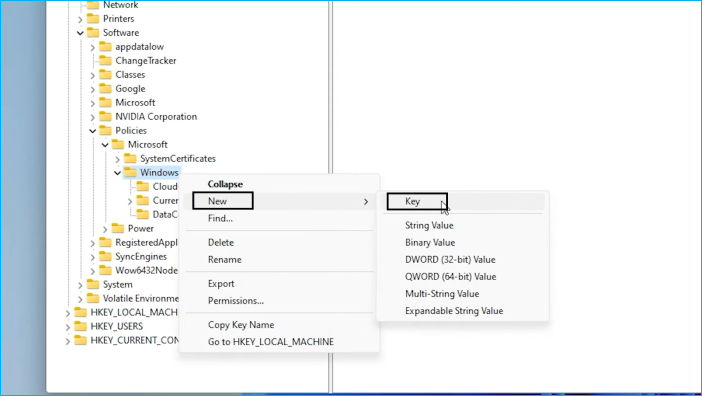
Step 5. Name it as WindowsCopilot and hit "Enter."
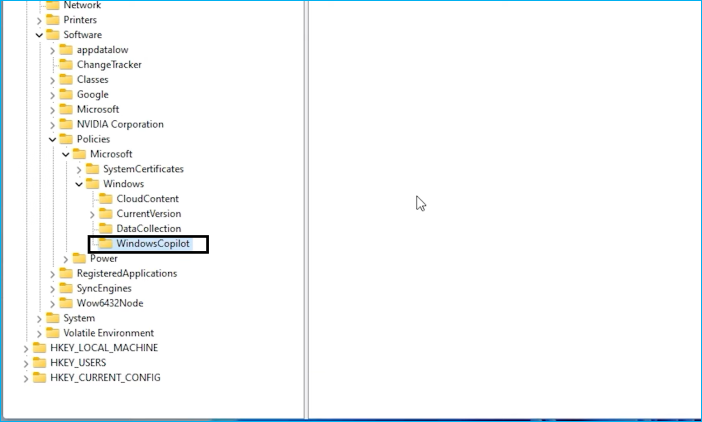
Step 6. Next, Right-click the newly created Key, choose "New," and select the "DWORD (32-bit) Value" option.

Step 7. Double-click the "TurnOffWindowsCopilot" DWORD.
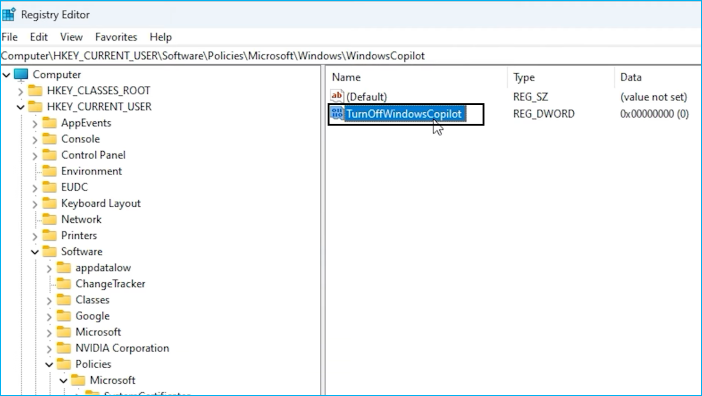
Step 8. And set its value to 1 to disable Copilot through the Registry. Click "OK" to save the change.

Step 9. Finally, close Registry Editor and restart the computer.
After completing these steps and restarting your computer, Copilot should be fully disabled on your system.
Find this article helpful? Share it with other users who also want to turn off Copilot in Windows 11.
Conclusion
To sum up, in this article, we've discussed Copilot and three effective methods to disable Copilot in Windows 11 by changing settings, using Group Policy Editor, and modifying the Registry.
Each method is suited for various users with different technical abilities, offering varying degrees of control. We aimed to give you complete alternatives for managing the presence of Copilot in Windows 11, enabling you to configure your computing environment as per your preferences.
Was This Page Helpful?
Oliver is an EaseUS professional writer who dares explore new areas. With a passion for solving tech issues with straightforward guides for common users, Oliver keeps honing his writing craft by developing in-depth solutions for disk and partition management, computer boot-up issues, file transfer, etc.
Related Articles
-
How to Backup OneNote in Windows 10 and How to Restore OneNote from Backup
![author icon]() Tracy King/2025-01-24
Tracy King/2025-01-24 -
[Fixed] Windows Cannot Delete the Active System Partition on This Disk
![author icon]() Cici/2025-01-24
Cici/2025-01-24 -
How to Stop Mac from Sleeping: Full Information to Prevent Mac from Sleeping
![author icon]() Dany/2025-01-24
Dany/2025-01-24 -
[Fixed] The Object Invoked Has Disconnected from its Clients
![author icon]() Daisy/2025-01-24
Daisy/2025-01-24
EaseUS Data Recovery Services
EaseUS data recovery experts have uneaqualed expertise to repair disks/systems and salvage data from all devices like RAID, HDD, SSD, USB, etc.